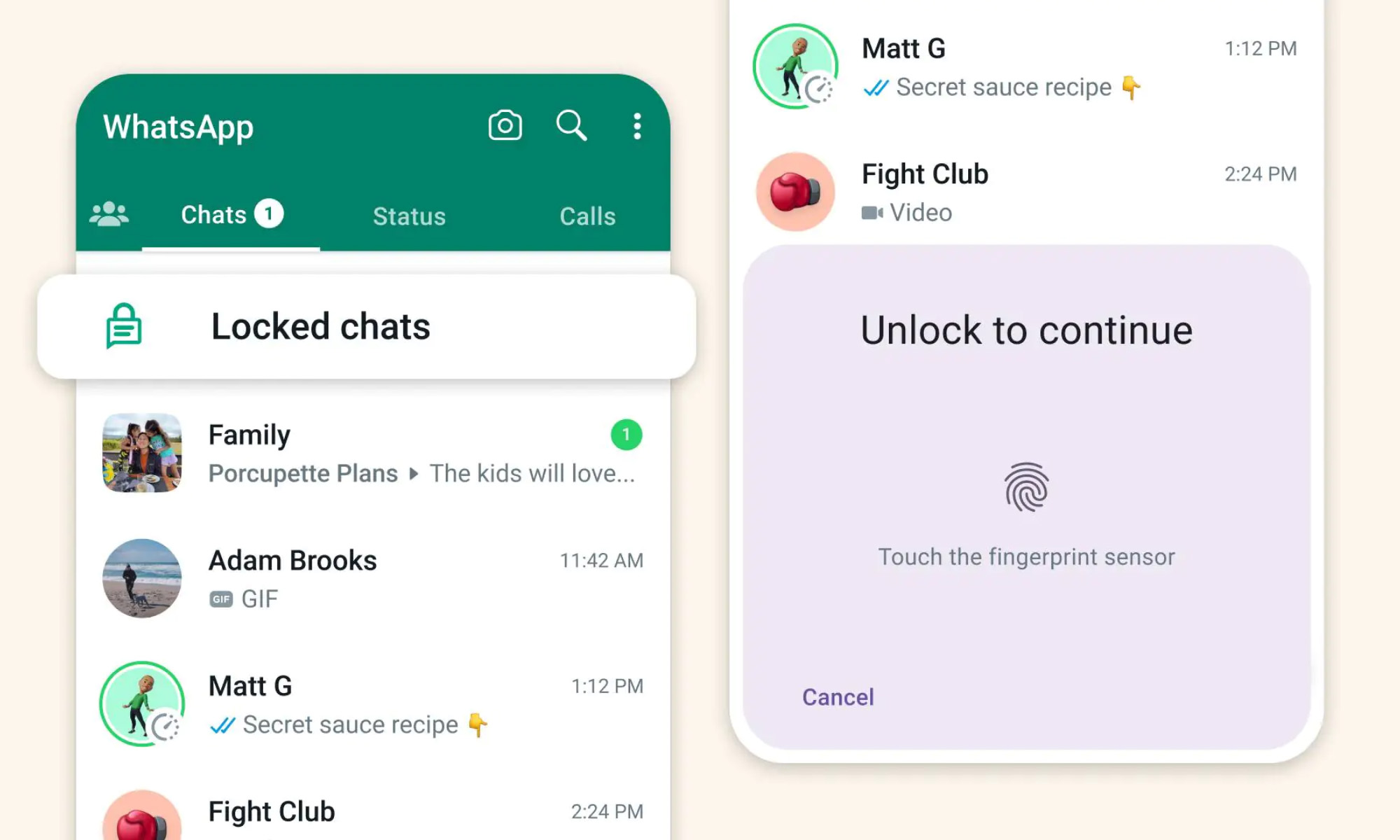News
WhatsApp Adds New Privacy Feature To Lock Sensitive Chats
The new setting lets users add conversations to biometrically locked folders and hide them from notifications.

WhatsApp has announced a new feature via its blog called “Chat Lock” that allows users to make their conversations more private. The tool can lock any conversation, placing it in a specialized folder accessible via fingerprint or face scanning biometrics or by entering a regular password. In addition, the new feature also hides references to locked chats from notification feeds.
To lock an existing conversation, users simply need to tap on the title of a person or group chat and select the lock option. When you want to read a locked chat, you’ll need to use your device’s biometric scanner to unlock it, or else enter a password.
WhatsApp notes that the feature is useful for keeping a chat private when “someone else is holding your phone at the exact moment an extra special chat arrives” and advises that the entire app can also be locked using biometric security.
Also Read: Saudi-Based Mozn Uses AI To Detect Money Laundering & Fraud
WhatsApp owners Meta have been upgrading the platform for some time now, in a bid to convince users of the app’s safety as more and more people turn to rivals such as Signal and Telegram. Meta recently upgraded WhatsApp’s verification system to deter hackers and has added additional features, including disappearing messages.
News
Rabbit Expands Hyperlocal Delivery Service In Saudi Arabia
The e-commerce startup is aiming to tap into the Kingdom’s underdeveloped e-grocery sector with a tech-first, locally rooted strategy.

Rabbit, an Egyptian-born hyperlocal e-commerce startup, is expanding into the Saudi Arabian market, setting its sights on delivering 20 million items across major cities by 2026.
The company, founded in 2021, is already operational in the Kingdom, with its regional headquarters now open in Riyadh and an established network of strategically located fulfillment centers — commonly known as “dark stores” — across the capital.
The timing is strategic: Saudi Arabia’s online grocery transactions currently sit at 1.3%, notably behind the UAE (5.3%) and the United States (4.8%). With the Kingdom’s food and grocery market estimated at $60 billion, even a modest increase in online adoption could create a multi-billion-dollar opportunity.
Rabbit also sees a clear alignment between its business goals and Saudi Arabia’s Vision 2030, which aims to boost retail sector innovation, support small and medium-sized enterprises, attract foreign investment, and develop a robust digital economy.
The company’s e-commerce model is based on speed and efficiency. Delivery of anything from groceries and snacks to cosmetics and household staples is promised in 20 minutes or less, facilitated by a tightly optimized logistics system — a crucial component in a sector where profit margins and delivery expectations are razor-thin.
Despite the challenges, Rabbit has already found its stride in Egypt. In just over three years, the app has been used by 1.4 million customers to deliver more than 40 million items. Revenue has surged, growing more than eightfold in the past two years alone.
Also Read: Top E-Commerce Websites In The Middle East In 2025
CEO and Co-Founder Ahmad Yousry commented: “We are delighted to announce Rabbit’s expansion into the Kingdom. We pride ourselves on being a hyperlocal company, bringing our bleeding-edge tech and experience to transform the grocery shopping experience for Saudi households, and delivering the best products – especially local favorites, in just 20 minutes”.
The company’s growth strategy avoids the pitfalls of over-reliance on aggressive discounting. Instead, Rabbit leans on operational efficiency, customer retention, and smart scaling. The approach is paying off, having already attracted major investment from the likes of Lorax Capital Partners, Global Ventures, Raed Ventures, and Beltone Venture Capital, alongside earlier investors such as Global Founders Capital, Goodwater Capital, and Hub71.























